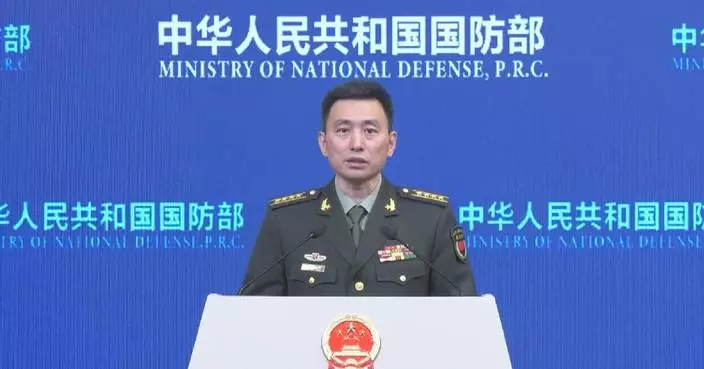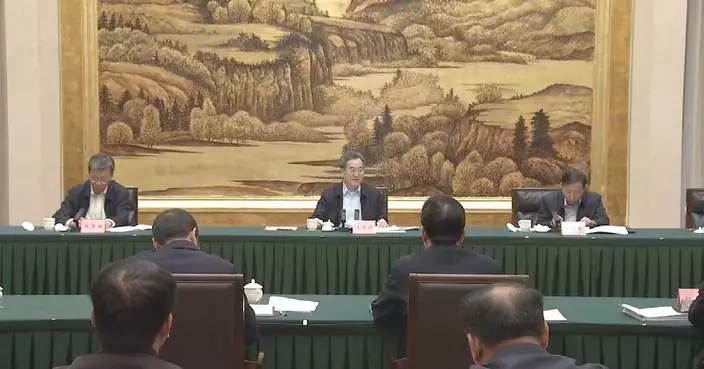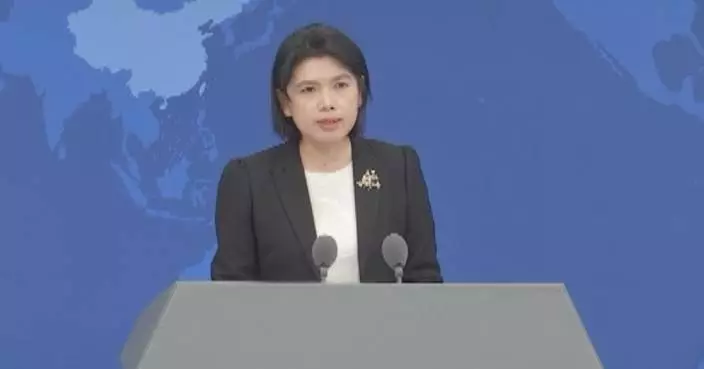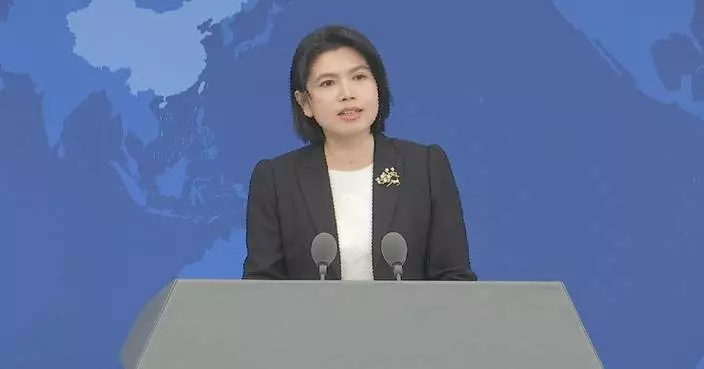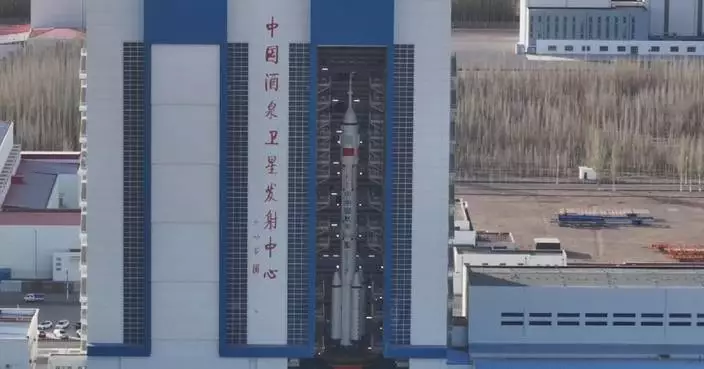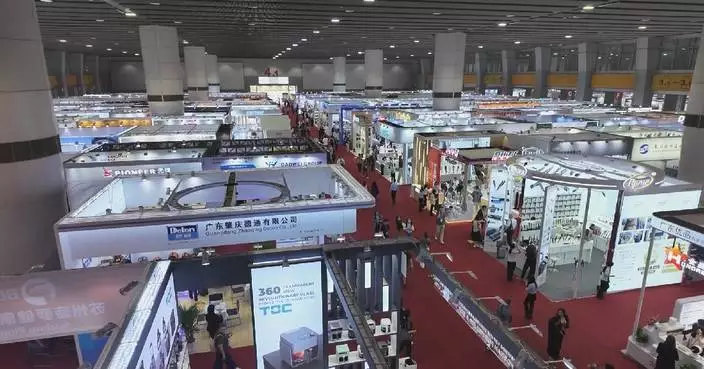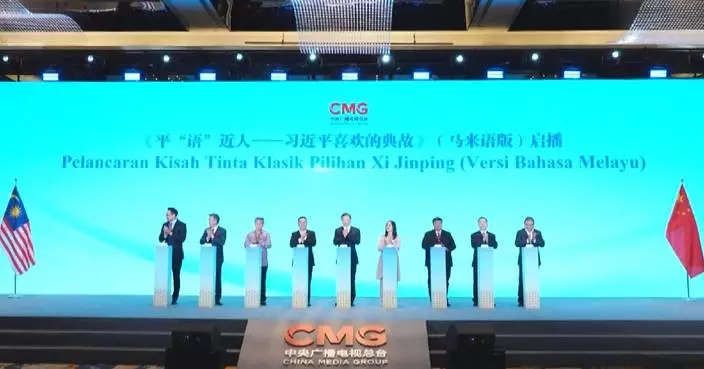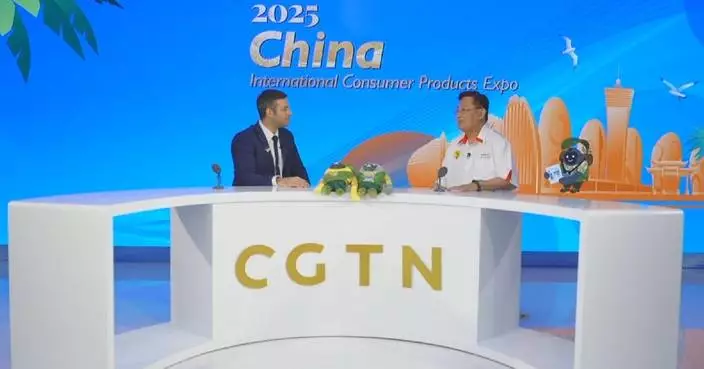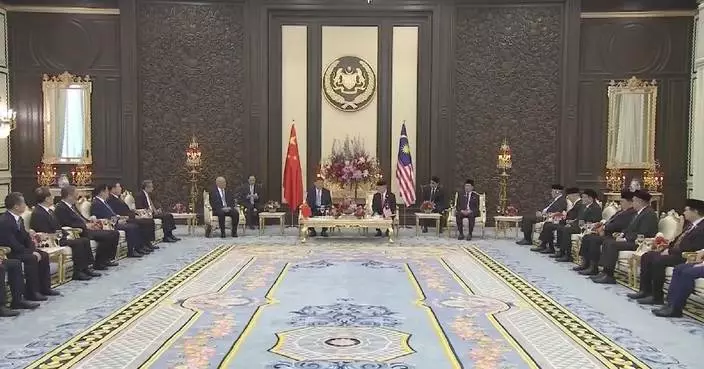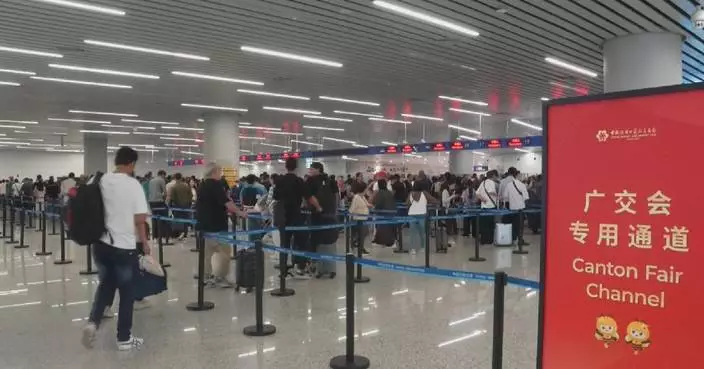The United States' unpredictable tariff policies have sparked concern in Germany, with many local officials believing now is the time for Germany to further strengthen cooperation with China given the increasing global economic uncertainties.
U.S. President Donald Trump signed an executive order last week imposing a 10-percent "minimum baseline tariff" on all imports before unveiling higher rates on certain trading partners. After several days of chaos on the global financial markets, Trump on Wednesday suddenly announced a 90-day pause of the higher tariff rates to all countries except China.
Monika Bottcher, the Mayor of Maintal, a city located in the Frankfurt Rhine-Main Region in Germany's industrial heartland, voiced concerns about the potential economic fallout, given how the region is significantly dependent on an export-oriented economy.
"It is of great significance to establish free trade relations on a global scale. We have been closely monitoring and are deeply concerned about the current tariff policies of the United States," she said in an interview with China Central Television (CCTV).
Meanwhile, Andreas Hofmann, first deputy head of the neighboring Main-Kinzig District, echoed these views and stressed the need for cooperative solutions to be found amid the current trade disputes.
"I think it's important that we work worldwide together and find ways to make trade fair over the whole world. And that's a very important point for us Germans too. I think it would be good when the U.S. government comes back to negotiations that we can work together and have an economic system that is working together," said Hofmann.
Against the backdrop of rising global economic uncertainty due to the U.S. tariff policies, local business leaders emphasized the strategic importance of cooperation with China, who has been Germany's largest trading partner for nine consecutive years. The two countries' economies are deemed to be highly complementary, with their economic and trade relations being highly integrated.
Another sign of these close ties came on Tuesday, when the Hongfa Group, a globally renowned relay manufacturer based in east China's coastal city of Xiamen, introduced its first fully automated production line for European exports to the city of Maintal.
"The cooperation between Chinese enterprise Hongfa and Maintal is a successful example. I must say that the relationship between Chinese companies and Germany is very good and very solid," said Bottcher.

US tariff policies spark concern in Germany as business leaders eye closer China ties

US tariff policies spark concern in Germany as business leaders eye closer China ties
Malaysian Prime Minister Anwar Ibrahim has praised the enduring strategic cooperation between Malaysia and China, emphasizing the importance of free trade and enhanced ASEAN cooperation in the face of global trade headwinds.
Ibrahim reflected on the 50 years of diplomatic relations between Malaysia and China, in an interview on Monday in Kuala Lumpur ahead of Chinese President Xi Jinping's ongoing visit to the country. Xi arrived in Malaysia on Tuesday to begin a state visit, the second stop of his current five-day, three-nation Southeast Asia tour which started in Vietnam and will later conclude in Cambodia.
Ibrahim highlighted several cooperation areas and future prospects when asked about the most outstanding achievement in China-Malaysia cooperation.
"This mode goes beyond the 50 years since our formal diplomatic ties. In fact, our friendly exchanges dated back much further, with a history of hundreds of years. As you all know, over the past two years, we have been working to enhance our foreign relations. First, by strengthening trade and investment cooperation among ASEAN countries. Then with our neighboring countries, including Japan and South Korea. But our ties with China are even closer, because China has always shown stronger willingness and sincerity in cooperation. We have seen growth in bilateral investment and trade volume. There has also been increased collaboration between universities, and more opportunities in TVET (Technical, Vocational Education and Training)," he said.
"Moreover, cultural exchanges and tourism have also seen obvious improvement. Progress in all these areas has greatly benefited us. It has improved our infrastructure and driven the development of sectors like catering and hospitality. Especially in technology and industrial sectors, we have witnessed the rise of major projects, such as the 'Two Countries, Twin Parks' initiative and technological cooperation projects like the one between Geely and Proton. The size and depth of these major projects far exceed what we have seen in the past," he added.
Addressing the challenges and opportunities in global trade, Ibrahim, who is also the ASEAN Chair, shared his views on leveraging regional strengths.
"There is no denying that tariffs have had a negative impact. As a trading nation, Malaysia has always believed in free trade. When tariff disputes happen, whatever the reason might be, it's going to hurt us. We must stay rational. At the ASEAN Trade Ministers' and Finance Ministers' meetings last week, we stressed that we should seek opportunities from our own strength. Instead of blaming someone else for a problem they created. We can further strengthen intra-Asian trade and investment cooperation, including cooperation with friendly countries such as China," he said.
"ASEAN countries also have great growth potential. Of course, we will not suspend consultations and negotiations with the United States. And we hope that trade will be back on the right track. About our relationship with China, as neighboring countries, China and Malaysia enjoy smooth and trouble-free relations. China's economic development can bring benefits to Malaysia. So I'm taking a pragmatic position. As long as the other country treats us with kindness, we should respond with even greater kindness," said Ibrahim.
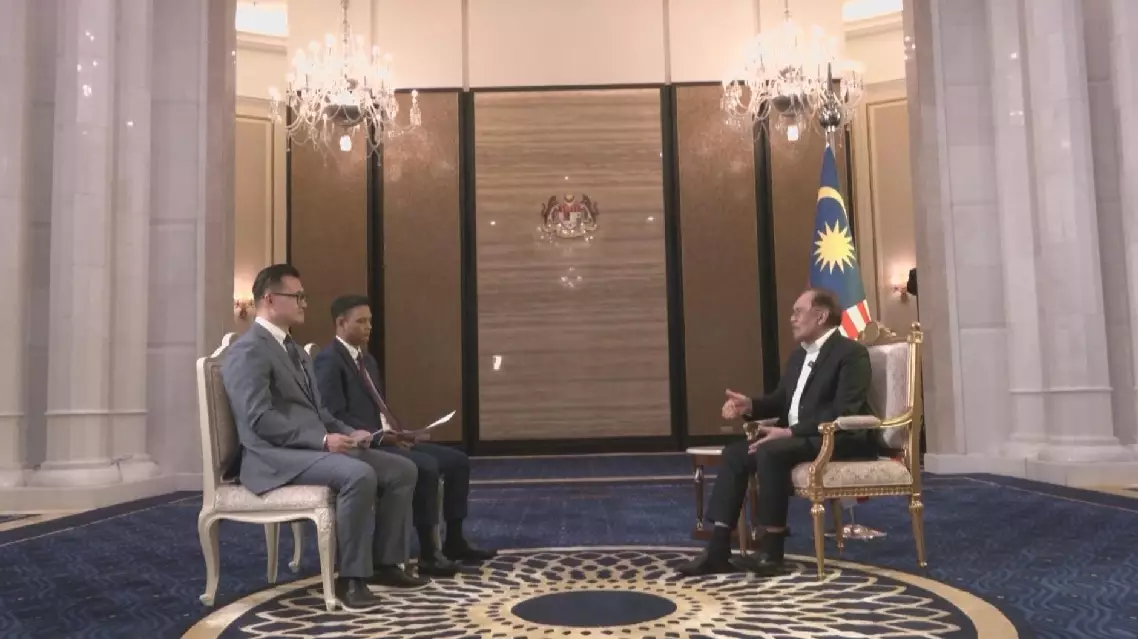
Malaysian PM hails ties with China, calls for stronger ASEAN cooperation






